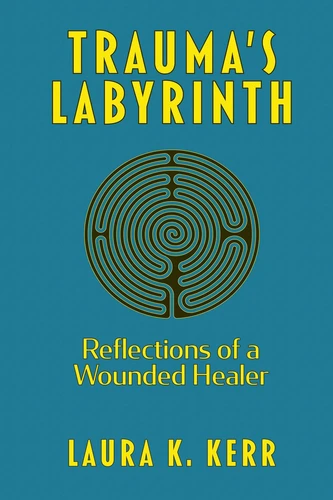Trauma's Labyrinth: Reflections of a Wounded Healer
Par :Formats :
Disponible dans votre compte client Decitre ou Furet du Nord dès validation de votre commande. Le format ePub est :
- Compatible avec une lecture sur My Vivlio (smartphone, tablette, ordinateur)
- Compatible avec une lecture sur liseuses Vivlio
- Pour les liseuses autres que Vivlio, vous devez utiliser le logiciel Adobe Digital Edition. Non compatible avec la lecture sur les liseuses Kindle, Remarkable et Sony
 , qui est-ce ?
, qui est-ce ?Notre partenaire de plateforme de lecture numérique où vous retrouverez l'ensemble de vos ebooks gratuitement
Pour en savoir plus sur nos ebooks, consultez notre aide en ligne ici
- FormatePub
- ISBN8985746006
- EAN9798985746006
- Date de parution28/03/2022
- Protection num.pas de protection
- Infos supplémentairesepub
- ÉditeurLK Kerr Books
Résumé
Trauma can feel like a labyrinth, twisting on itself like a maze of despair, without end or exit. This seems particularly true in today's chaotic world of pandemics, climate change, social conflict, and systemic violence. Increasingly, the conditions of the larger world aggravate, if not cause, the traumas in our individual lives. However, as Laura K. Kerr, PhD explores in this wide-ranging collection of essays, not only can we heal from trauma, but we can use it as an opportunity for growth and transformation, changing ourselves and the world for the better.
Drawing from her experiences as researcher, trauma survivor, and psychotherapist, she examines various causes of trauma, details how to understand and treat trauma's effects, and explores the role society plays in activating traumatic defenses. Despite the weightiness of the topic, Dr. Kerr brings hope for lasting, positive change. As Dr. Kerr shows, the key lies in removing rigid divides, like those between wounded and healer, self and society.
When they are integrated, healing becomes transformative and enduring-not only for ourselves but for the increasingly traumatized world in which we live.
Drawing from her experiences as researcher, trauma survivor, and psychotherapist, she examines various causes of trauma, details how to understand and treat trauma's effects, and explores the role society plays in activating traumatic defenses. Despite the weightiness of the topic, Dr. Kerr brings hope for lasting, positive change. As Dr. Kerr shows, the key lies in removing rigid divides, like those between wounded and healer, self and society.
When they are integrated, healing becomes transformative and enduring-not only for ourselves but for the increasingly traumatized world in which we live.
Trauma can feel like a labyrinth, twisting on itself like a maze of despair, without end or exit. This seems particularly true in today's chaotic world of pandemics, climate change, social conflict, and systemic violence. Increasingly, the conditions of the larger world aggravate, if not cause, the traumas in our individual lives. However, as Laura K. Kerr, PhD explores in this wide-ranging collection of essays, not only can we heal from trauma, but we can use it as an opportunity for growth and transformation, changing ourselves and the world for the better.
Drawing from her experiences as researcher, trauma survivor, and psychotherapist, she examines various causes of trauma, details how to understand and treat trauma's effects, and explores the role society plays in activating traumatic defenses. Despite the weightiness of the topic, Dr. Kerr brings hope for lasting, positive change. As Dr. Kerr shows, the key lies in removing rigid divides, like those between wounded and healer, self and society.
When they are integrated, healing becomes transformative and enduring-not only for ourselves but for the increasingly traumatized world in which we live.
Drawing from her experiences as researcher, trauma survivor, and psychotherapist, she examines various causes of trauma, details how to understand and treat trauma's effects, and explores the role society plays in activating traumatic defenses. Despite the weightiness of the topic, Dr. Kerr brings hope for lasting, positive change. As Dr. Kerr shows, the key lies in removing rigid divides, like those between wounded and healer, self and society.
When they are integrated, healing becomes transformative and enduring-not only for ourselves but for the increasingly traumatized world in which we live.



